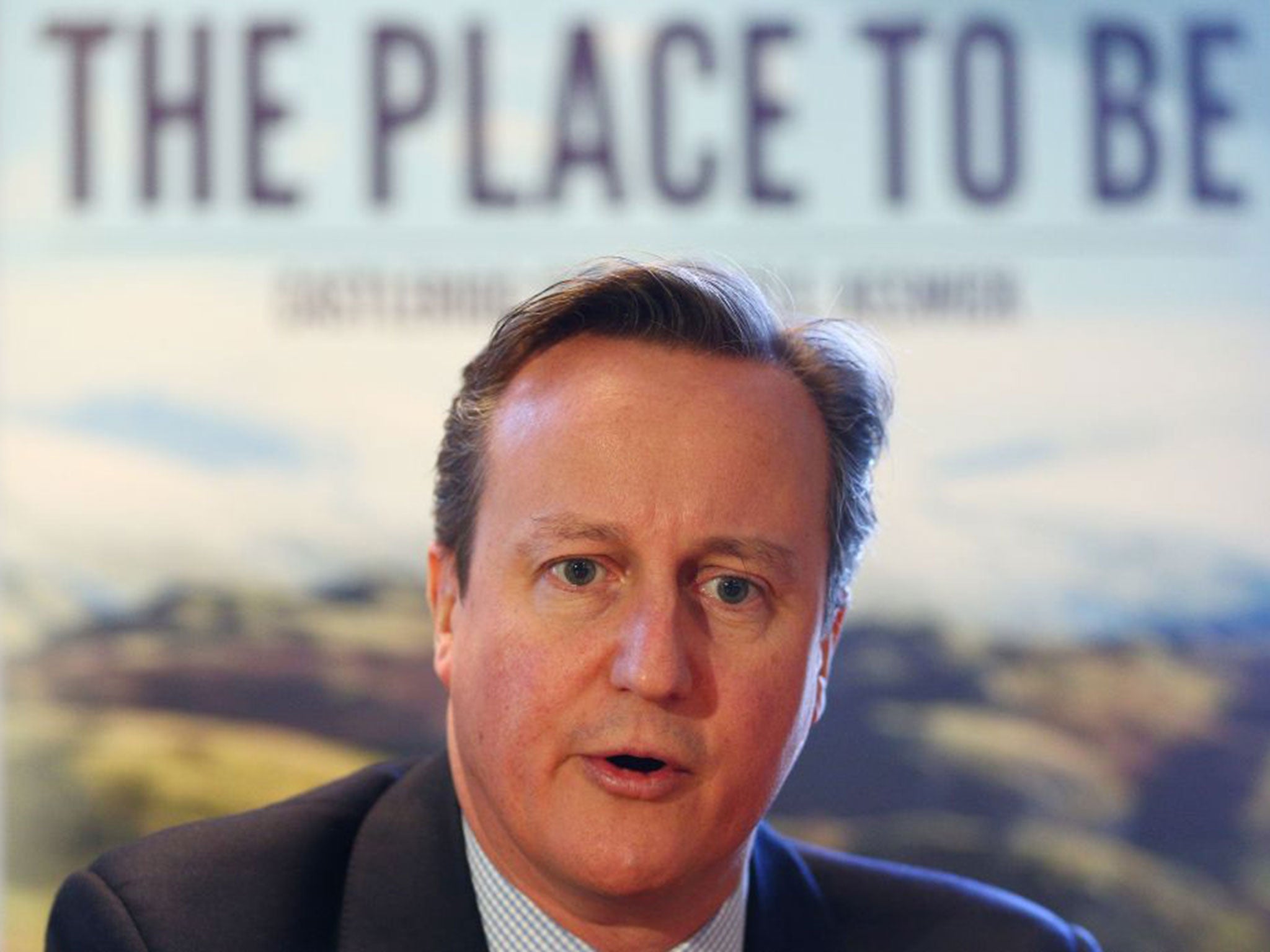Brexit is an emotional rollercoaster - and we can't get off it now
To lead an ‘out’ campaign demands a high level of conviction as well as calculations about ambition


For David Cameron the next few days will be crammed with long, arduous meetings in which every dot and comma of his pre-referendum deal with have to be agreed. The talks will be detailed and exhausting. They are real, not cosmetic. His team have been working on little else for months. When Cameron said in passing that he was negotiating at the “outer reaches” of what is achievable he was speaking truthfully. Negotiating in a vacuum, without the context of treaty change in which there is a more structured interplay between countries, Cameron will get as much as he was ever going to.
Within the EU there is no talk of Cameron being taken for a ride. Other senior players, from Angel Merkel downward, have done as much as they can to make concessions. All of this would be of significance if it were not for the context in which this long, complex negotiation reaches a climax this week. That context is the in/out referendum.
Referendums have little or nothing to do with detail. They are highly charged, emotional events. I happened to be in Scotland at the point in that tumultuous referendum when George Osborne, Ed Balls and Danny Alexander, the senior economic policymakers of the three main UK parties, got together to assert that an independent country could not keep the pound. All three raised a valid question. What would be the currency of an independent Scotland? The mood of anger in response was tangible. How dare they tell us which currency we can and cannot use? How dare they imply we cannot cope as a vibrant independent economy? There never was a clear answer to the currency question, but there were plenty of emotional ones.
Emotions are soaring once more as Cameron finalises the nightmarish details of his deal. Take the case of Michael Gove, a principled politician who left the easy world of journalism to follow his convictions and implement policies that he believes in.
For senior political figures, referendums often throw up the most Shakespearean of emotional questions: to what or whom am I loyal? Gove is a longstanding critic of the UK’s membership of the EU and could probably explain more lucidly the case against than other current vocal opponents. But he is a close friend and supporter of both Cameron and Osborne and is acutely aware that a defeat for them in the referendum could destroy their political careers. Is he loyal to a belief, or to close allies and the wider cause on which their continued success may depend? There is no easy answer to a conundrum that has little to do with Cameron’s final days of negotiating.
I read constantly that the referendum must be seen through the prism of the looming leadership contest in the Conservative Party, that potential leaders will decide to back “in” or “out” on the basis of whether this helps them seize the crown. This is not the case with Gove, who has declared sincerely that he does not want to be a leader (although he wants to help Osborne succeed and will be acutely aware that a “no” majority will prevent such an outcome). I doubt if ambition alone will determine the decision of anyone else, with the possible exception of Boris Johnson who has flirted with both sides at different times. But one of Johnson’s allies observes to me that, in the end, he believes that with many qualifications we are better off in the EU and that is “quite a big barrier to leading the ‘out’ campaign”.
To lead an “out” campaign demands a high level of conviction as well as calculations about ambition. All the potential candidates for the Tory leadership are big enough figures not to want to risk the future of the country in order to become a leader. Besides, what sort of country and Conservative Party would they inherit as a prime minister having led a successful “out” campaign? There would be huge amounts of blood on the Tory carpet and at best deep economic fragility.
At the feverish height of their rivalry, Tony Blair is said to have offered Gordon Brown the keys to Number 10 if the Chancellor backed him first in a referendum campaign to join the euro. Although Brown ached to be PM, one of the many reasons he did not agree to the offer was that he feared inheriting the nightmare of a UK in the euro or, having just lost a referendum, campaigning for entry. In the context of referendums, players make complex calculations that include (but are by no means limited to) sincere judgements about what they believe to be the best for the UK. This is all stressful for those involved, igniting emotions, and is little reflection at this stage on Cameron’s deal.
We know how emotionally charged the campaign will be as well – a battle of mood music in which the details of Cameron’s negotiation will again play only a tiny role. Imprecise mood music will also determine what follows the battle.
There is no clear answer, for example, as to what constitutes a “victory” in a referendum. We know from experience in Scotland that a win by a margin of 10 per cent signalled a terrible defeat for those who had won, and a sensational triumph for the SNP, the party that had, on paper at least, lost.
In this case, if “out” wins by a small margin the UK may not leave the EU. But a tight outcome may well trigger another round of negotiations and a second referendum. Similarly, if the result in June is “in” by a small margin, there will also be another referendum before very long.
Oliver Letwin has indicated he will vote “in” now only because he will vote “out” at a later, more appropriate date: a very Letwinesque Third Way, proving that not only are referendums an emotional roller-coaster, but they resolve nothing at all.



Join our commenting forum
Join thought-provoking conversations, follow other Independent readers and see their replies